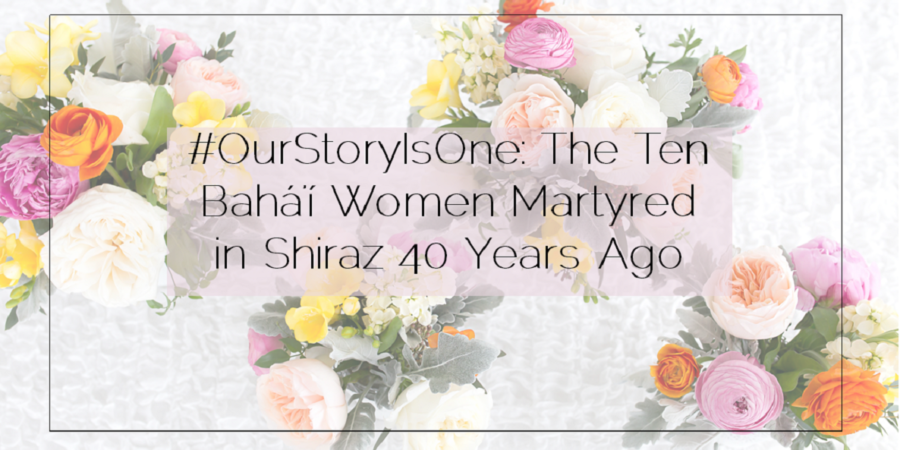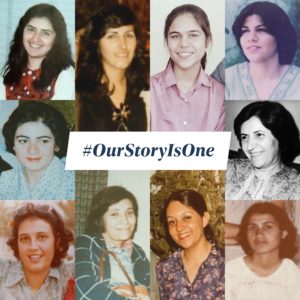Although I was really young, I still remember the phone calls, usually late at night, during which the adults’ voices would increase in pitch: “Allo? Allo? Allo! Iran? Iran?!?”
I should have been in bed, but I knew something was up. My memories of course are extremely hazy because I was a toddler, and the many gaps have been filled with the stories shared with me since then.
In 1979, the Islamic Republic of Iran was established, and with it, an era of abuse and systematic killing of Bahá’ís. Every night, phone calls would be made to relatives in Australia, Canada, Europe, and the United States, where news about who was missing, who had been killed, and whose house and/or business had been confiscated was shared. To this day, we still get these phone calls, although they are much easier to make and do not require the sometimes alarming number of phone cards we’d have to buy in the 1990s.
In light of the current struggle for freedom in Iran, the 40th anniversary of the death by hanging of ten women between the ages of 17 and 57 in Shiraz, the city my father comes from, is particularly poignant. Over the course of the month of June, I will be sharing their stories in a series of Instagram posts. Each of these women died because they believe in the unity of mankind, in the equality of all, and in a just and prosperous world for every inhabitant. And I feel like each of these women would be pouring their heart and soul in their work for the betterment of whatever community they would be living in, had their lives not be taken from them.
The 10 Baha’i women of Shiraz executed on 18 June 1983 are: Mona Mahmoudnejad (17); Roya Eshraghi (23, executed along with her mother); Simin Saberi (24); Shahin (Shirin) Dalvand (25); Akhtar Sabet (25); Mahshid Niroumand (28); Zarrin Moghimi-Abyaneh (29); Tahereh Arjomandi Siyavashi (30; her husband, Jamshid Siavashi, has been executed two days earlier); Nosrat Ghufrani Yaldaie (46; her son, Bahram Yaldaie, had been executed two days earlier); Ezzat-Janami Eshraghi (57, along with her daughter Roya; her husband, Enayatullah Eshraghi, had been executed two days earlier).
My memories of these women specifically, rather than all the Bahá’ís in Iran, started forming a few years later, when I first watched the video clip to the Juno-nominated song by Doug Cameron, Mona With The Children (available here). I remember being surprised that the song was so uplifting—wasn’t it depressing, that they killed all these women, and so many other Bahá’ís?
But I get it now. I feel it when I hear news that a peaceful gathering of Bahá’ís in Yemen was raided by gunmen, or read about the chemical attacks on Iranian schoolgirls asking for freedom, the way activists are being put in jail or harassed for advocating to prevent more Indigenous women from being murdered or to preserve old growth trees, I feel both deep pain at the suffering ensured —yes, the news itself is quite depressing and makes my heart bleed, but I am also encouraged and uplifted, because I know I am not alone.
And neither are you.
During the month of June, I will be posting about each of the 10 women here, on Twitter, on Facebook, and on Instagram, not to grieve them, but to celebrate them, and to celebrate the millions of other women both in and outside Iran who work tirelessly to bring about a just and peaceful world. I hope you will join me by sharing these stories, both online and offline, as we continue working on the betterment of the world.


